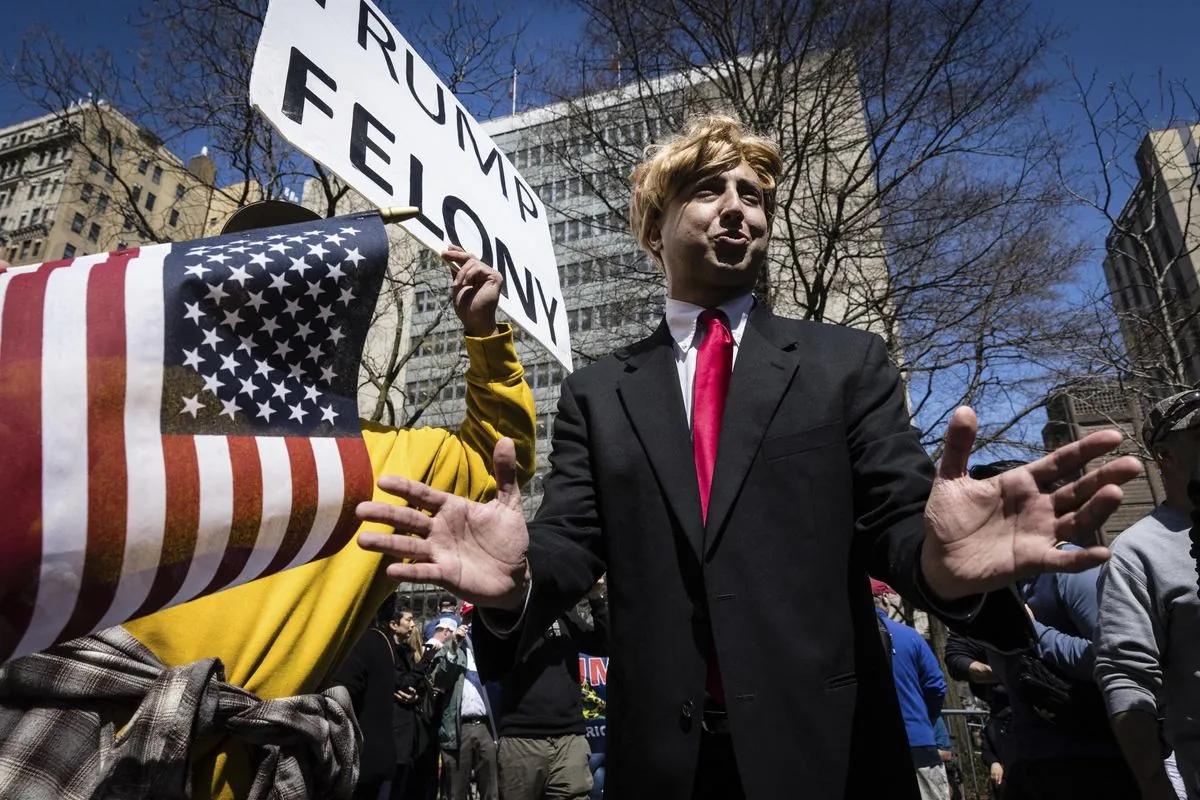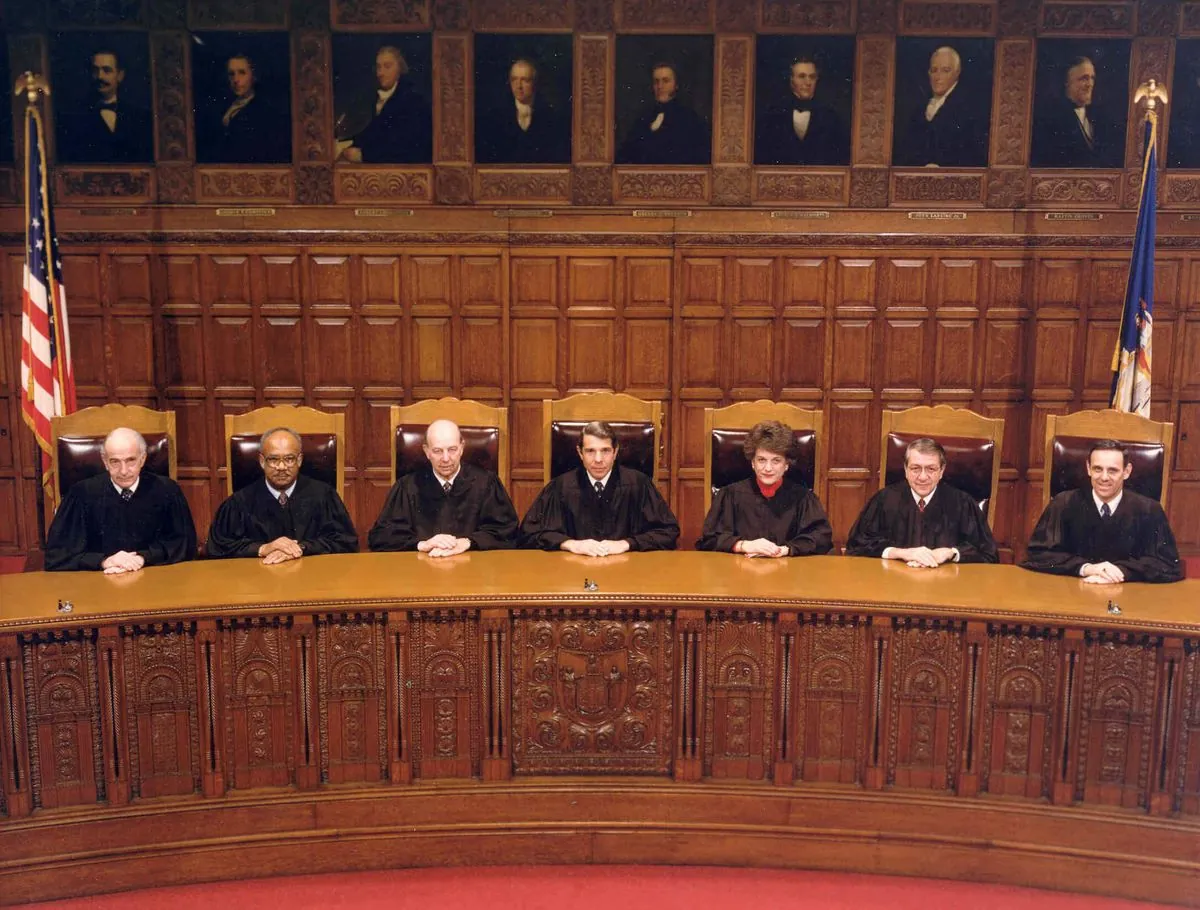New York Judge Rejects Trump's Third Recusal Request in Hush Money Case
A New York judge has denied Donald Trump's third request for recusal in the hush money case. The decision comes as the former president faces sentencing for falsifying business records related to payments made to an adult film actress.

In a recent development, a New York judge has once again declined to step aside from the high-profile case involving Donald Trump and hush money payments. This marks the third time Justice Juan Merchan has rejected such a request, maintaining his position as the presiding judge in this unprecedented legal matter.
The case, which has garnered significant attention, centers around Trump's conviction on 34 felony counts of falsifying business records. These charges stem from efforts to conceal a $130,000 payment made to adult film actress Stormy Daniels prior to the 2016 U.S. presidential election.
Justice Merchan, in his ruling dated August 13, 2024, dismissed the former president's legal team's arguments as repetitive and lacking new substance. The judge stated, "Defendant has provided nothing new for this Court to consider. Counsel has merely repeated arguments that have already been denied by this and higher courts."

The crux of Trump's recusal request revolved around alleged conflicts of interest related to Justice Merchan's daughter's work for a political consultancy. This firm has previously worked with Democratic campaigns, including the unsuccessful 2020 presidential bid of Kamala Harris, who is now serving as Vice President.
It's worth noting that political consultancies play a significant role in U.S. elections, offering strategic advice to campaigns across the political spectrum. However, the judge has consistently maintained that his daughter's professional activities do not compromise his ability to preside over the case impartially.
The concept of judicial impartiality is fundamental to the U.S. legal system, and recusal decisions are taken seriously to maintain public trust in the judiciary. In this case, an ethics panel had previously determined that the judge's daughter's work did not pose reasonable questions about his impartiality.
The hush money payment at the center of this case was allegedly made to ensure Daniels' silence about a sexual encounter she claims to have had with Trump in 2006. It's important to note that while hush money payments are not inherently illegal, they can become problematic if improperly recorded or used to influence elections.
Trump's conviction on falsifying business records carries potential consequences ranging from fines to imprisonment. In New York, this offense can be classified as either a misdemeanor or a felony, depending on the intent behind the actions.
As the case progresses, Trump's legal team has made additional efforts to challenge the conviction. They have requested that the judge throw out the guilty verdict in light of a recent U.S. Supreme Court ruling on presidential immunity. This ruling, issued in July 2024, grants former presidents broad protection from prosecution for official acts taken while in office.
The sentencing for Trump is scheduled for September 18, 2024, with Justice Merchan expected to decide on the arguments for dismissal by September 16. This timeline places these crucial legal decisions just weeks before the November 5, 2024, U.S. presidential election, in which Trump is the Republican nominee facing the Democratic ticket.
As this case unfolds, it continues to highlight the complex interplay between the U.S. legal system, political processes, and the unique challenges posed when a former president faces criminal charges. The outcome of this case and related legal battles may have far-reaching implications for the interpretation of presidential powers and immunities in the future.


































